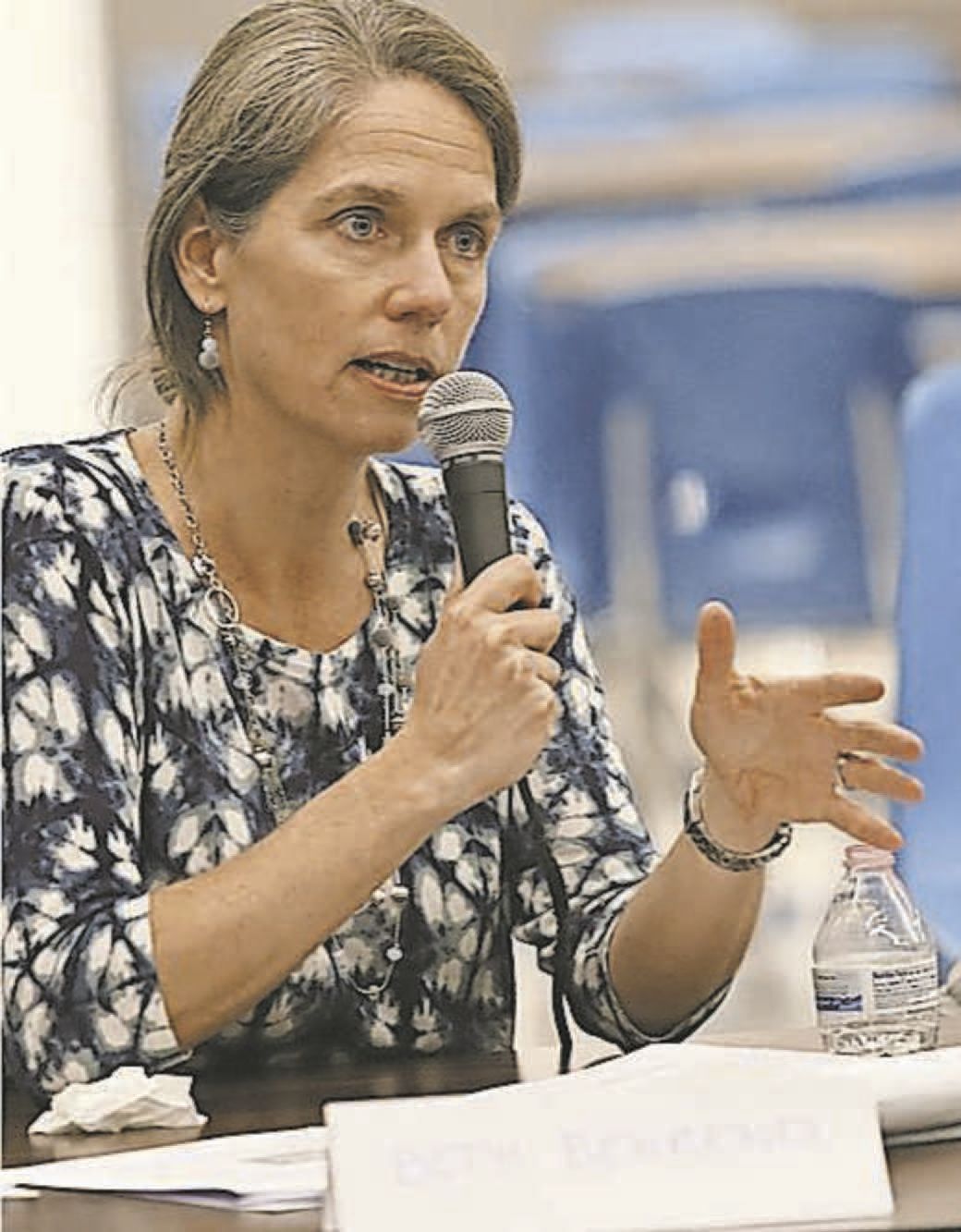By Philip Sean Curran, Staff Writer
On a Thursday night in October, Beth A. Behrend took her seat in a public school cafeteria with the five other candidates running for Princeton Board of Education, to once again go before voters ahead of the election.
At multiple forums like that one or house meetings that supporters had organized for them, the six candidates worked at retail politics to sell themselves to the public. Unlike past years when the school board races might have been an afterthought except for the engaged few, 2017 was a different story.
“It was a real election,” said Behrend, the eventual top vote-getter at 3,649 votes, in looking back. “And I learned a ton. It was an amazing opportunity to hear what people had to say in our town.”
Behrend, Jess Deutsch, at 3,429 votes, and former Princeton Township Mayor Michele Tuck-Ponder, at 3,215, on Tuesday won the three seats on the school board. They will assume office in January.
Whether it was due to a heightened civic involvement or newfound focus on the school district in the wake of the fight about the Princeton Charter School enrollment expansion, the contest for school board induced a larger than normal field.
“We had six people. That shows that there’s a lot of excitement in the community about what the school board is doing,” said school board President Patrick Sullivan.
“I think that there was a happy confluence of circumstances this year that motivated more people to run, including, probably, a response to their disappointment over last year’s presidential election. But I don’t think that’s all of it,” said Andrea Spalla, a former school board president.
“I think the rising enrollment and the coming (facilities bond) referendum stoked a level of interest in the community,” she continued. “So I think it’s less about a response to events in the past and it’s more a desire to get involved and be part of the process going forward that motivated a lot of these people.”
“This race marks a positive step forward for the entire community in terms of the level of civic engagement,” said Mia Sacks, who was closely involved in supporting a number of the candidates. “There was a markedly heightened awareness … of issues and a greater involvement in the political process.”
But in a race that observers said had six quality candidates, the outcome was not close.
Tuck-Ponder finished more than 700 votes ahead of fourth-place finisher Jenny Ludmer, 2,485 votes, followed by Julie Ramirez at 2,380 and James Fields at 1,444. In part, the wide spread might have had a correlation with where the candidates were on the ballot, with Deutsch, Behrend and Tuck-Ponder, in the top three positions, in that order.
“The conventional wisdom is that ballot placement makes a big difference,” Sacks said.
But she said there were different groups in town who gravitated to candidates who echoed their concerns. Behrend, Deutsch and Tuck-Ponder, she said, reflected the three top concerns voters had: the well-being of students, the achievement gap among students and the upcoming facilities bond referendum to pay for building and other projects.
“I think I won based on the issues that I care about are in line with what our community is focused on,” Deutsch said. “And I’m grateful for that and hopeful about working on these issues and having the chance to serve.”
For her part, Behrend said this year’s race was not a “one-issue campaign,” with voters asking about a range of topics.
“It was interesting because I found people asking, at almost at every gathering, about multiple issues,” she said. “They would talk about taxes. They talked about what’s your position on Charter, what’s your position on Cranbury, how do you feel about special needs and how do you feel about diversity and equity and inclusion.”
Except for Tuck-Ponder, none of the other candidates had run for public office before. They went through a campaign that required multiple public and private events to appeal to voters, had lawn signs up around town and used social media, with most having candidate web sites and Facebook pages.
“It was a serious race,” Sacks said. “And they all really put a lot of work into developing their platforms and to engaging with the voters.”
“To run is a lot of work, to serve is a lot of work,” Deutsch said. “So I think it’s appropriate that it takes a lot to get there.”
But during the campaign, the candidates offered little in the way of policy disagreements with one another or with the direction of the school system.
“There weren’t huge differences in their positions on the biggest issues,” Spalla said.
“All six of them really shared our vision for where we want the schools to go, which was heartening,” Sullivan said. “And although there were nuances between them, it wasn’t a controversial election because there weren’t people who were against what we’re trying to accomplish now. There were people who had nuances and could bring skills to the table to help us be successful. But there was nobody who thought we were going in the wrong direction.”
Behrend, Deutsch and Tuck-Ponder will take office with the school district looking to have a facilities bond referendum, in 2018, to address overcrowding at Princeton High School, possibly open a new school in town and make security and other improvements at other schools, among other things.
“From everything I know right now, I feel like we’re moving in a direction that we need to,” Deutsch said. “But I’m looking forward to getting the full picture.”
“It’s going to be a good group and we have a lot of work to do,” Sullivan said. “So I’m looking forward to getting started with them.”

